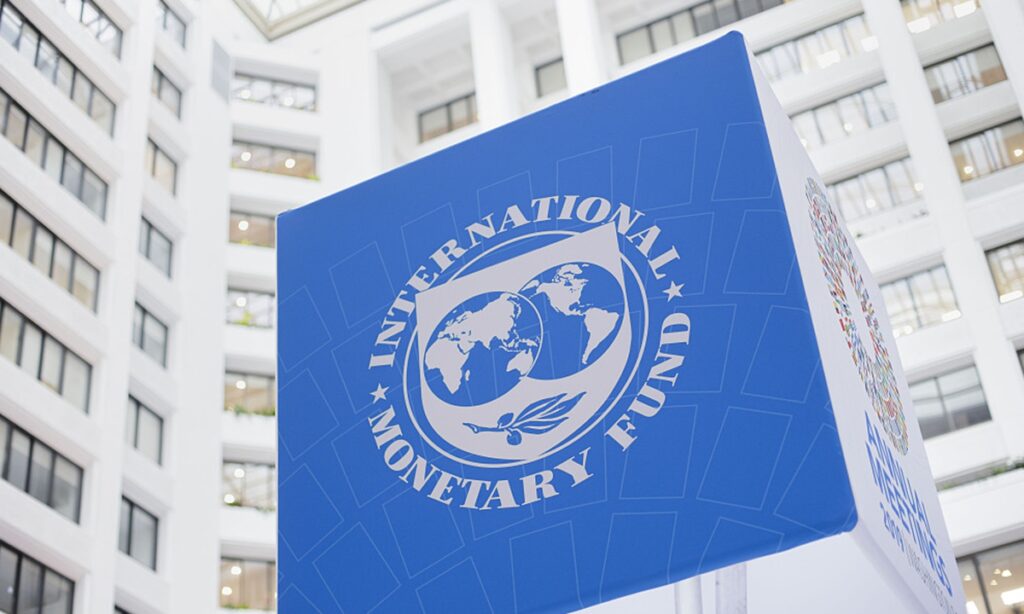The IMF was approved for the qualified foreign institutional investor (QFII) status by China Securities Regulatory Commission (CSRC), after it was approved for Renminbi Qualified Foreign Institutional Investors (RQFII) in 2019, domestic media outlet cnstock.com reported on Friday.
The QFII/RQFII system is one of the most important systems for the liberalization of China’s financial market. Overseas institutions, including the IMF, have accelerated their applications for QFII and RQFII, which indicates that overseas investors, especially long-term investment funds, recognize China’s medium- and long-term development prospects, experts said.
The IMF investment funds that obtained the qualification of QFII are responsible for reserve assets investment. Upon obtaining the new QFII status, the IMF plans to transfer long-term investment assets through the Stock Connect to the QFII/RQFII mechanism, according to the Xinhua News Agency.
At the beginning of the implementation of the policy, the QFII/RQFII system was once set with more restrictions on investment quota and asset allocation ratio, but in recent years, the relevant restrictions have been relaxed as China continued to open its capital market.
In September 2019, the State Administration of Foreign Exchange (SAFE) announced the abolition of the restrictions on the investment quota of QFIIs and RQFIIs; and in September 2020, the CSRC, the People’s Bank of China and the SAFE issued a series of measures to lower the threshold of access for foreign-funded institutions, expand the scope of investment, and strengthen ongoing supervision.
With the QFII/RQFII reforms advancing, the number of institutional investors with qualifications continues to increase. Since 2021, six international organizations and sovereign institutions have been qualified as QFIIs, according to Xinhua.
As of the end of July 2023, a total of 778 foreign institutions have been approved for QFII, data from the CSRC showed.
In recent years, applications for QFII/RQFII by overseas institutions, including the IMF, have accelerated, indicating, on the one hand, that overseas investors, including long-term investment funds, are more cognizant of China’s medium- and long-term development prospects and are willing to participate in the Chinese market, Dong Shaopeng, a senior research fellow at the Chongyang Institute for Financial Studies at the Renmin University of China, told the Global Times on Friday.
On the other hand, the accelerated trend also showed China’s reforms and efforts in the opening-up have continued to make positive progress, the expert noted.
Li Qusuo, a strategy analyst at CICC, said in a report by Xinhua that China is firmly promoting a high level of opening-up, and the opening-up of financial accounts is an important part.
Li said that foreign investors have become one of the most important investor categories in the A-share market, and the current scale of the A-share market value held by foreign investors is about 3.5 trillion yuan ($484.2 billion). The scale of the A-share market value held through Shanghai/Shenzhen-Hong Kong Stock Connect program totaled about 2.5 trillion yuan, and that held through the QFII/RQFII mechanism is about 1 trillion yuan.
Compared with China’s continuous opening-up to embrace foreign capital in the Chinese market, the US signed an executive order to ban new US investments in key technology industries in China that the US claimed could be used to bolster its military capabilities, which has affected normal business decisions of enterprises, undermined the international economic and trade order, and seriously disrupted the security of the global industrial chain and supply chain.
Dong said that the ban may have some influence on the foreign investment in China to a certain extent.
(Global Times)




